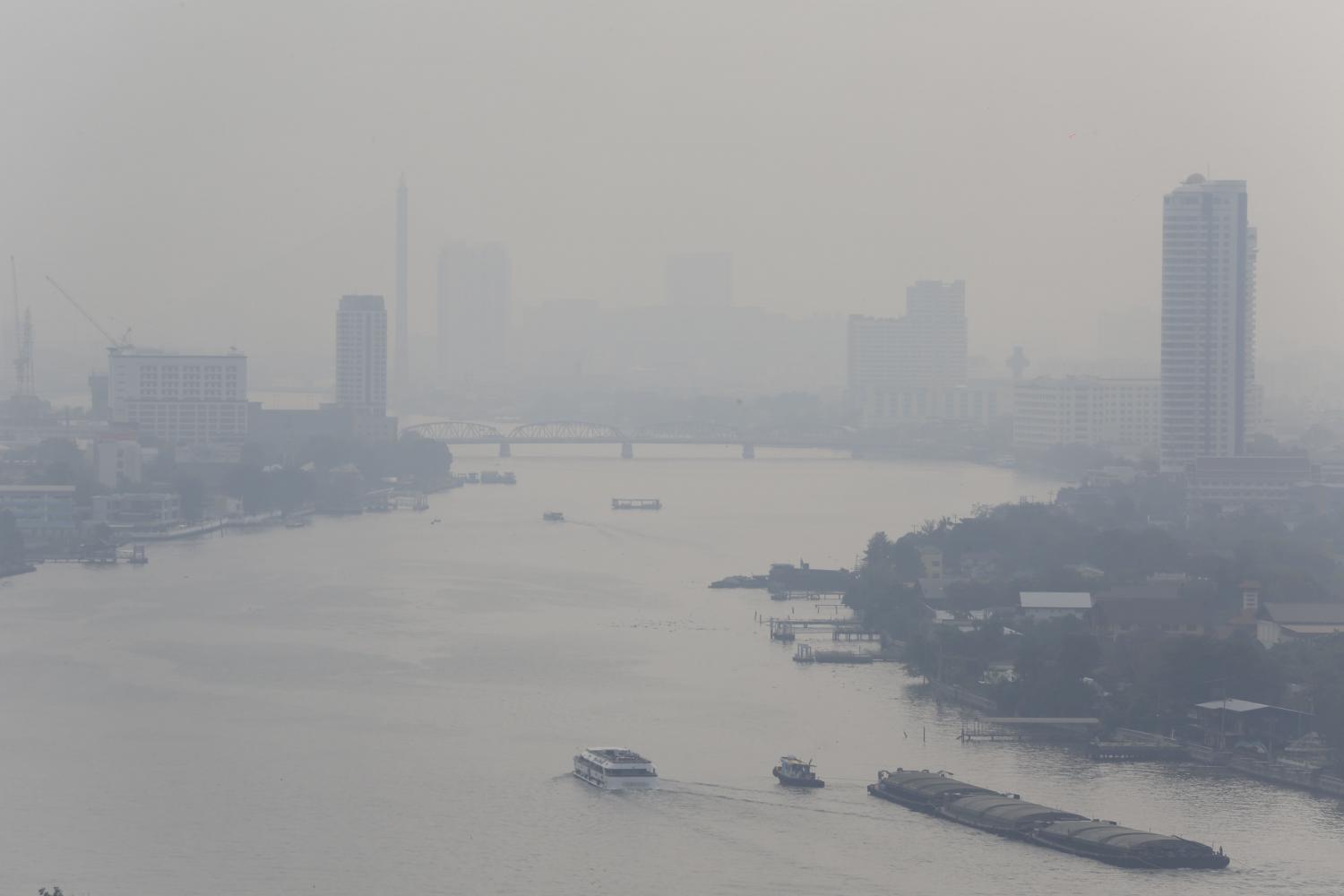
Prime Minister Prayut Chan-o-cha on Monday lamented how hard it is to enforce laws to reduce PM2.5 dust as academic experts and civic groups slammed government measures as too lenient and superficial.
"Indeed, the public is responsible and a culprit in the PM2.5 problem. Yet we cannot simply put the blame on people and penalise all the polluters because the outcome of penalty measures will create other serious problems for society. We need to rely on asking for cooperation," Gen Prayut told the media during a mobile cabinet event in Narathiwat.
The government is being attacked for failing to tackle air pollution, in particular the prevalence of PM2.5 -- ultra-fine dust particles 2.5 micrometres or less in diameter that can lodge in the lungs and enter blood vessels, leading to respiratory and cardiovascular disease.
On Monday, smog levels remained at unhealthy levels in Bangkok with high pollution readings in 34 out of Bangkok's 50 districts.
The amount of PM2.5 in the air ranged from 50 to 89 microgrammes per cubic metre (µg/m³) in the 24 hours to 7am. The government-set "safe" threshold is 50 µg/m³.
Meanwhile, the cabinet today will be asked to approve short-term measures to improve air quality proposed by the Ministry of Natural Resources and Environment.
The measures include a ban on lorries entering inner-city areas on odd-number dates, cutting the sulphur content of premium-grade petrol, promoting car pooling and public transportation, and a crackdown on open burning.
They will take effect immediately after cabinet approval and last until the end of February.
However, experts on air pollution and environmental campaigners complained that these measures do not go far enough.
Tara Buakamsri, country director of Greenpeace Southeast Asia, said more must be done to tackle the causes of excessive PM2.5 levels.
"People have already lost confidence in the government's response because they don't think it is enough to deal with the problem," he told the Bangkok Post.
He said the government should look for long-term solutions such as improving public transport and implementing policies to discourage private vehicle use.
Sonthi Kotchawat, an environmental expert, said the government has placed too much emphasis on diesel lorries when it should be cracking down on open burning which is the real culprit.
In a related development, Bangkok governor Aswin Kwanmuang on Monday said that the city is planning to temporarily close BMA-run schools when local PM2.5 levels exceed 75 µg/m³.
Governor Aswin did not spell out when this policy will come into force as he said related agencies must first be consulted to minimise the impact on school schedules.